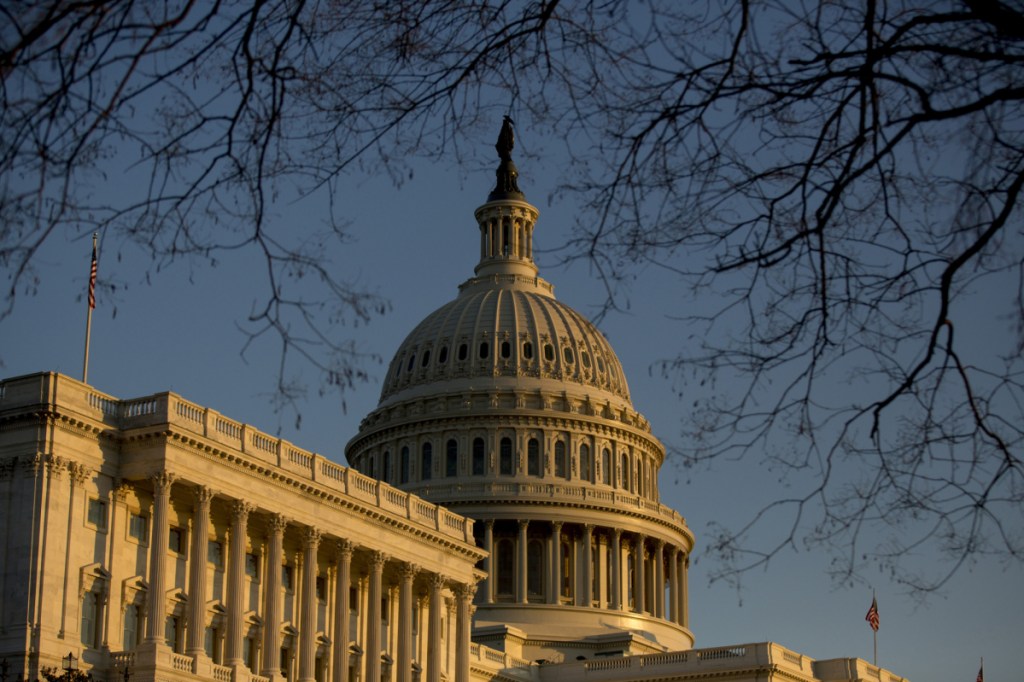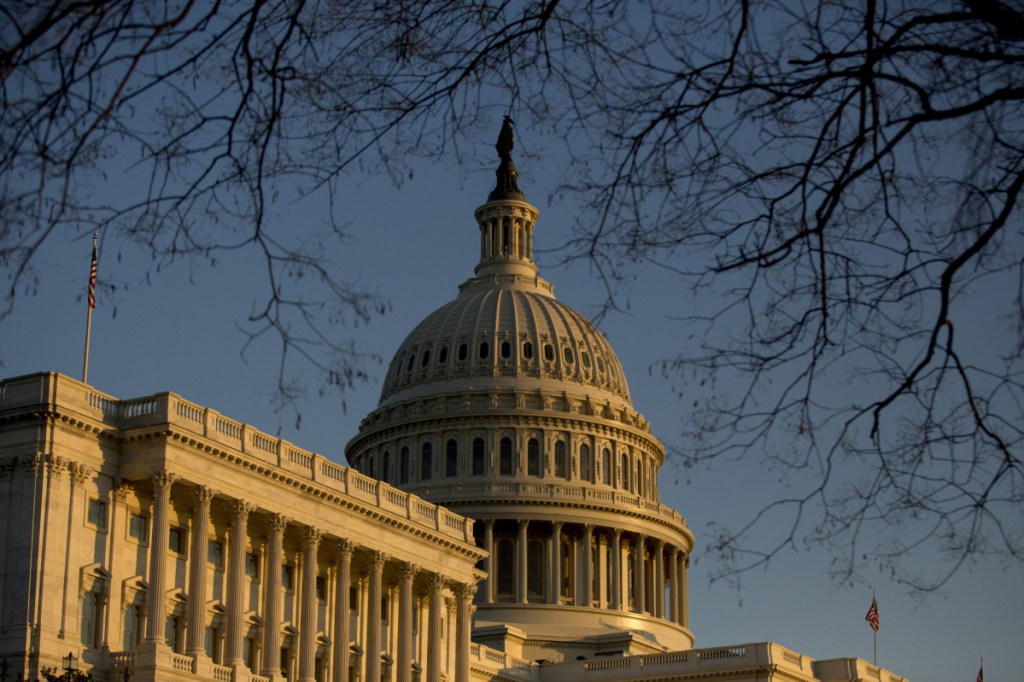WASHINGTON — The Congressional Leadership Fund, the leading Republican super PAC focused on the House, is booking $48 million in ad reservations ahead of the November midterm elections — giving its first indications of where it intends to focus its considerable resources this year.
Most of that — $38 million — is reserved for television airtime in 20 battleground House districts. In five of them — held by Republican Reps. Don Bacon of Nebraska; Garland “Andy” Barr of Kentucky; Steve Knight of California; Claudia Tenney of New York; and Mimi Walters of California — the reservations are extensive enough to keep CLF on air from Labor Day, the unofficial start of campaign season, all the way through Election Day on Nov. 6.
The remaining $10 million will be spent on digital advertising in 30 districts. CLF is also running field operations in 31 districts across the country. This year’s TV reservations come months ahead of the pace set in previous election cycles: In 2016, CLF made its first reservation, of $10 million, in August.
“Today’s announcement demonstrates CLF’s continued commitment to doing things differently,” the group’s executive director, Corry Bliss, said in a statement. “By reserving advertising early, investing unprecedented resources in digital, and running the country’s only House-focused national field program, CLF is prepared to lead the way in defending the House Republican majority.”
The reservations come amid an unsettled outlook for November. Strategists in parties believe Democrats have an advantage going into the midterms and are certain to pick up seats, but it remains unclear whether they can pick up the 23 they need to regain the majority. A Washington Post/ABC News poll published Monday said that Democrats retain an advantage when voters are asked which party’s House candidate they prefer, but that advantage has shrunk since January.
Ad reservations made today for this fall can be modified or canceled, but they provide a valuable snapshot into the thinking of political strategists early in the campaign season. Generally speaking, early reservations mean lower rates for advertisers – though campaigns themselves are guaranteed a preferential rate.
The CLF reservations come about a month after its Democratic counterpart, the House Majority PAC, reserved $43 million in airtime in 33 media markets. Most of the seats targeted by the two groups overlap, heralding an election season chock full of political commercials for TV viewers in key media markets across the country.
A person familiar with the CLF ad reservations said the group is looking to spend early in a handful of key districts to help define those races before October. Those seats — belonging to Reps. Mike Coffman of Colorado; Jeff Denham of California; Will Hurd of Texas; and Bruce Poliquin of Maine — are likely to be flooded near Election Day with ads from the party committees and the campaigns themselves.
Other incumbents set to receive air cover from CLF include Reps. Mike Bishop of Michigan; Mike Bost of Illinois; John Abney Culberson of Texas; Carlos Curbelo of Florida; Brian Fitzpatrick of Pennsylvnia; Tom MacArthur of New Jersey; Erik Paulsen of Minnesota; and Kevin Yoder of Kansas. Also targeted are seats being vacated by Reps. Lynn Jenkins, R-Kan., Rick Nolan, D-Minn., and Dave Reichert, R-Wash.
Those Republicans set to benefit from digital spending include all of the districts targeted for TV airtime as well as those held by Reps. Rod Blum of Iowa; Ted Budd of North Carolina; Brian Mast of Florida; John Katko of New York; Cathy McMorris Rodgers of Washington; Leonard Lance of New Jersey; Peter Roskam of Illinois; Keith Rothfus of Pennsylvania; Scott Taylor of Virginia; and and David Valadao of California.
CLF has announced plans to raise and spend $100 million ahead of the November elections and has reported record-breaking fundraising totals since setting that goal. It remains to be seen, though, whether the announced retirement of House Speaker Paul Ryan, R-Wis. — who maintains close ties to CLF — will affect the willingness of donors to pony up the six- and seven-figure checks that the group relies on to fund its efforts.
Send questions/comments to the editors.




Comments are no longer available on this story